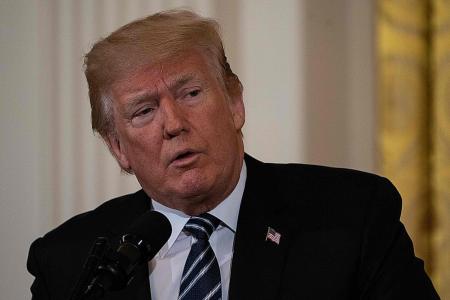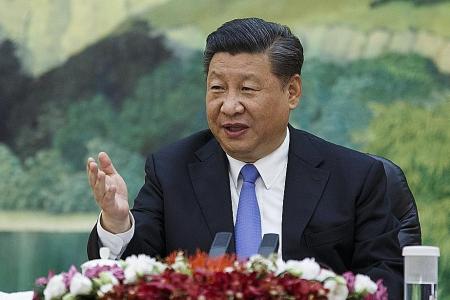US-China trade deal kicks nearly every can down the road
US-China trade hostilities cool down, but joint statement does little to advance American demands
A US-China trade detente kicks nearly every can down the road.
Beijing agreed vaguely to a few things to which it has agreed before. President Donald Trump's demand that China shrink its surplus by US$200 billion (S$268b) went missing.
Such details may yet get hammered out, but Chinese President Xi Jinping's industrial policy looks safer amid the negotiations.
The joint statement issued on Saturday is notable for what is left unsaid. It lacks a concrete deficit reduction target, a departure from initial US demands, and instead promises policies to "substantially reduce" the trade imbalance in goods. It is also ambiguous about new Chinese measures to protect US intellectual property rights, the proximate cause of the standoff.
Some procrastination is necessary to work out the fine print.
Treasury Secretary Steven Mnuchin, for instance, said the administration has industry-specific deficit reduction targets in mind. Even so, a degree of scepticism is warranted.
Trade hawks want a clear figure and date specifically because Beijing has been known to overpromise and under-deliver on trade matters.
Most significant, however, is how little the two sides had to say about China's efforts to champion local industries.
Several administration officials, especially US Trade Representative Robert Lighthizer, have sought to curb policies such as "Made in China 2025", which aims to upgrade the country from basic manufacturing and improve in areas such as high-tech and pharmaceuticals. US attention now seems mostly focused on the deficit and other narrower issues.
That makes sense only if seen from Mr Trump's transactional nature. Industrial policies are tougher, as they're a big part of China's economic system.
Any final agreement to, say, pare back Beijing's support for state companies would be an order of magnitude more difficult than one that sells a few more American goods.
It would be a mistake, however, to ignore the issues altogether. They feed heavily into other trade matters such as excess capacity, which can lead to overseas markets being flooded with Chinese goods.
Beijing's efforts to build out in areas of technology also have produced concerns over security in developed countries.
Punting on this broader question may be politically expedient, but only gives Beijing more time to advance its less market-friendly policies. - REUTERS
Get The New Paper on your phone with the free TNP app. Download from the Apple App Store or Google Play Store now



